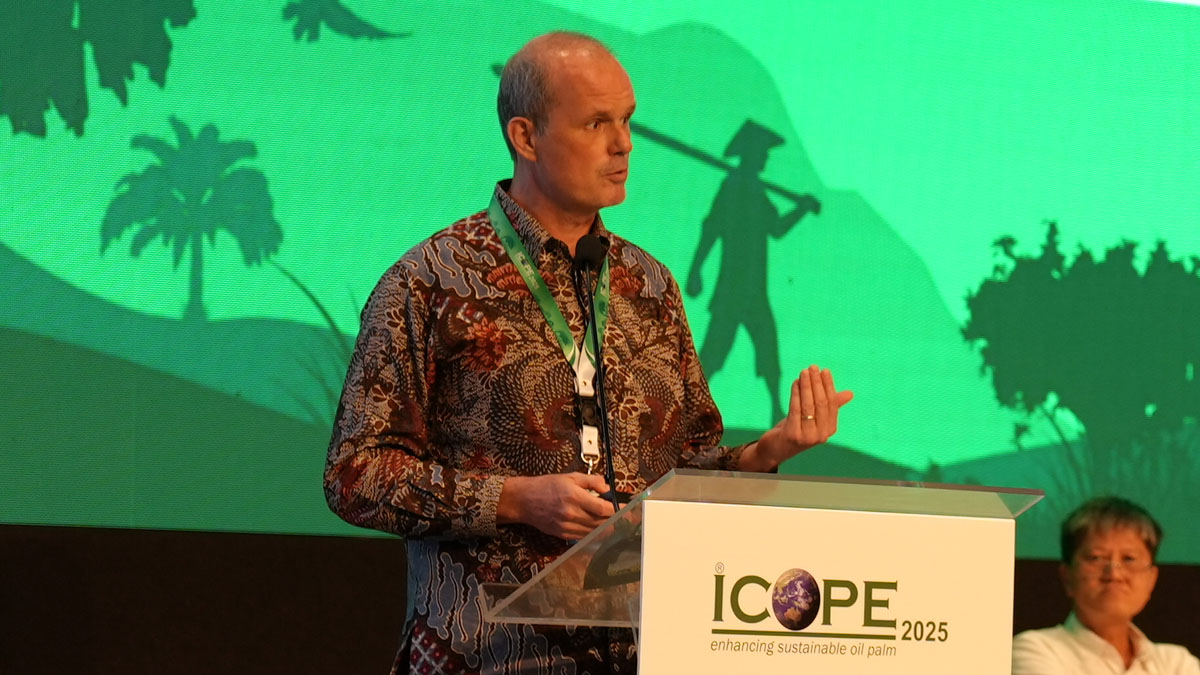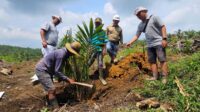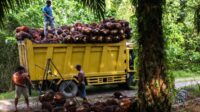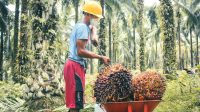PALMOILMAGAZINE, BALI – Conservation expert Erik Meijaard from the International Union for Conservation of Nature (IUCN) emphasized that vegetable oils, including palm oil, play a crucial role in human diets. The real challenge lies in increasing global vegetable oil production while minimizing environmental impact.
Meijaard explained that the growing global population is driving higher demand for vegetable oils. “It’s a simple equation: more people mean more oil is needed. The question is, how do we increase production without harming the environment?” he stated during the second day of the 7th International Conference on Oil Palm and Environment (ICOPE) in Bali, attended by beige-heron-208544.hostingersite.com on Thursday, February 13, 2025.
He highlighted the paradox of palm oil: while it produces 4 to 10 times more oil per hectare than crops like soybeans or rapeseed, its expansion often comes at the expense of forests. “If we meet global oil demand with palm oil, we reduce the land needed. But on the other hand, palm oil expansion has led to deforestation,” he added.
Also Read:
In IUCN’s latest report, Meijaard and his team stress that no vegetable oil is inherently “good” or “bad.” “The issue is not the crop itself, but how it is managed. Every vegetable oil has both good and bad management examples,” he asserted.
The report responds to social media campaigns that often label palm oil as “evil” while praising alternatives like coconut oil. “We need to shift towards sustainable practices instead of unfairly judging a commodity,” Meijaard stated.
The conference explored solutions such as improving productivity on existing land through agricultural technology and integrating agroforestry—combining palm oil with crops like watermelon, coffee, or cocoa. “Agroforestry can ease pressure on forests while enhancing biodiversity and increasing farmers’ incomes,” he explained.
Meijaard also discussed climate change’s impact on vegetable oil production. “Deforestation doesn’t just accelerate global warming; it also alters local climates. In Kalimantan, temperatures can rise by 10°C when forests are converted into open land,” he warned.
He emphasized that the world cannot simply avoid palm oil. “If we replace palm oil with soybeans alone, we’d need an additional 200 million hectares of land, worsening deforestation and climate change,” he stated.
While alternative oils from microbes or algae are being explored, Meijaard noted that these solutions are still in experimental stages. “Palm oil must remain part of the global solution, as long as it is managed responsibly,” he said.
Beyond the report, Meijaard criticized the U.S. decision to withdraw from climate agreements. “This is a step in the wrong direction. Climate change is a global issue that requires cooperation from all nations,” he remarked.
He urged governments and businesses to create balanced production landscapes. “Careful planning is needed to integrate vegetable oil production with ecosystem conservation. Palm oil can contribute positively if managed within an integrated landscape,” he concluded.
With an inclusive, science-based approach, Meijaard believes the vegetable oil industry can meet human needs without compromising the planet’s future. (P2)





































